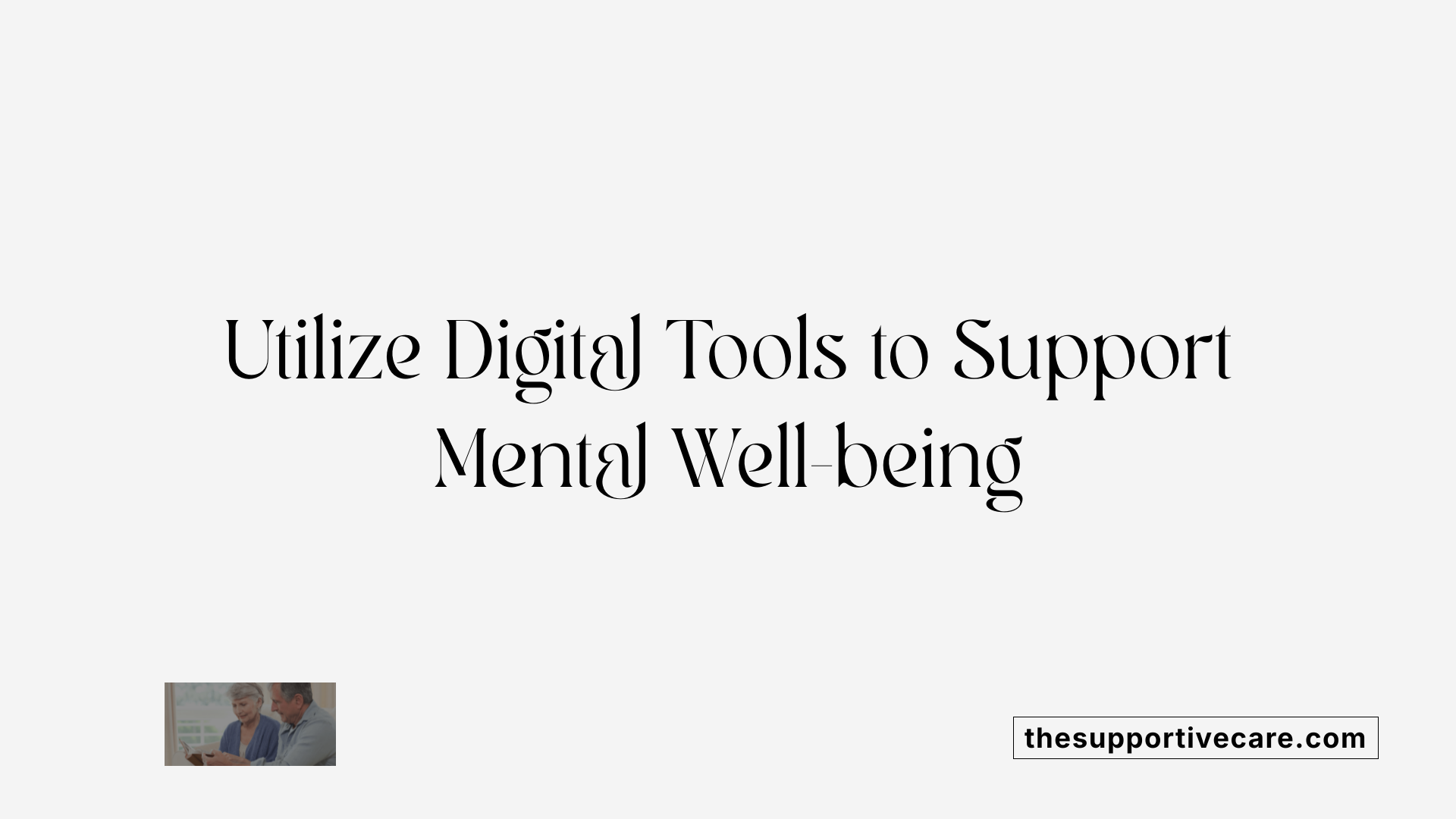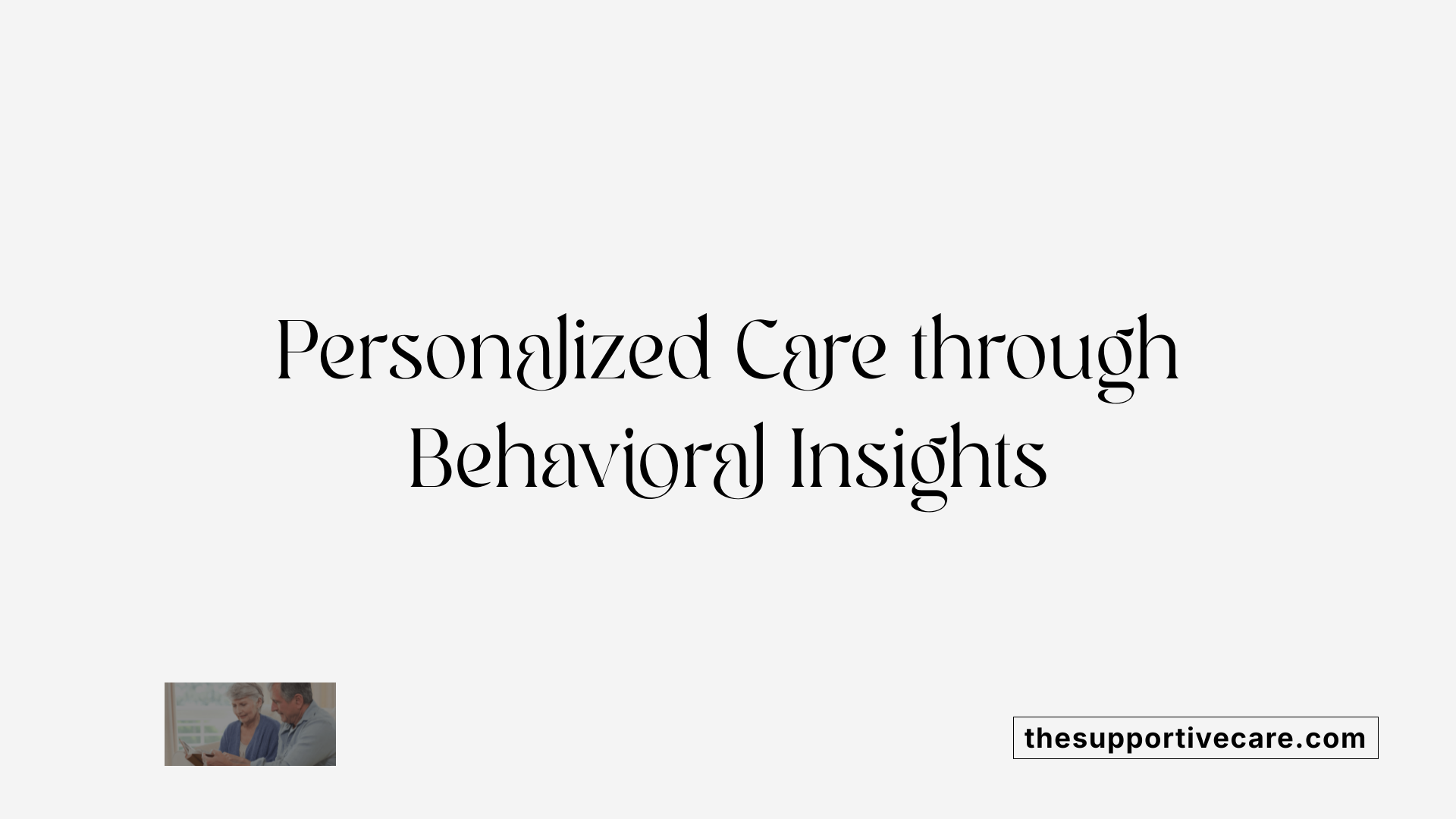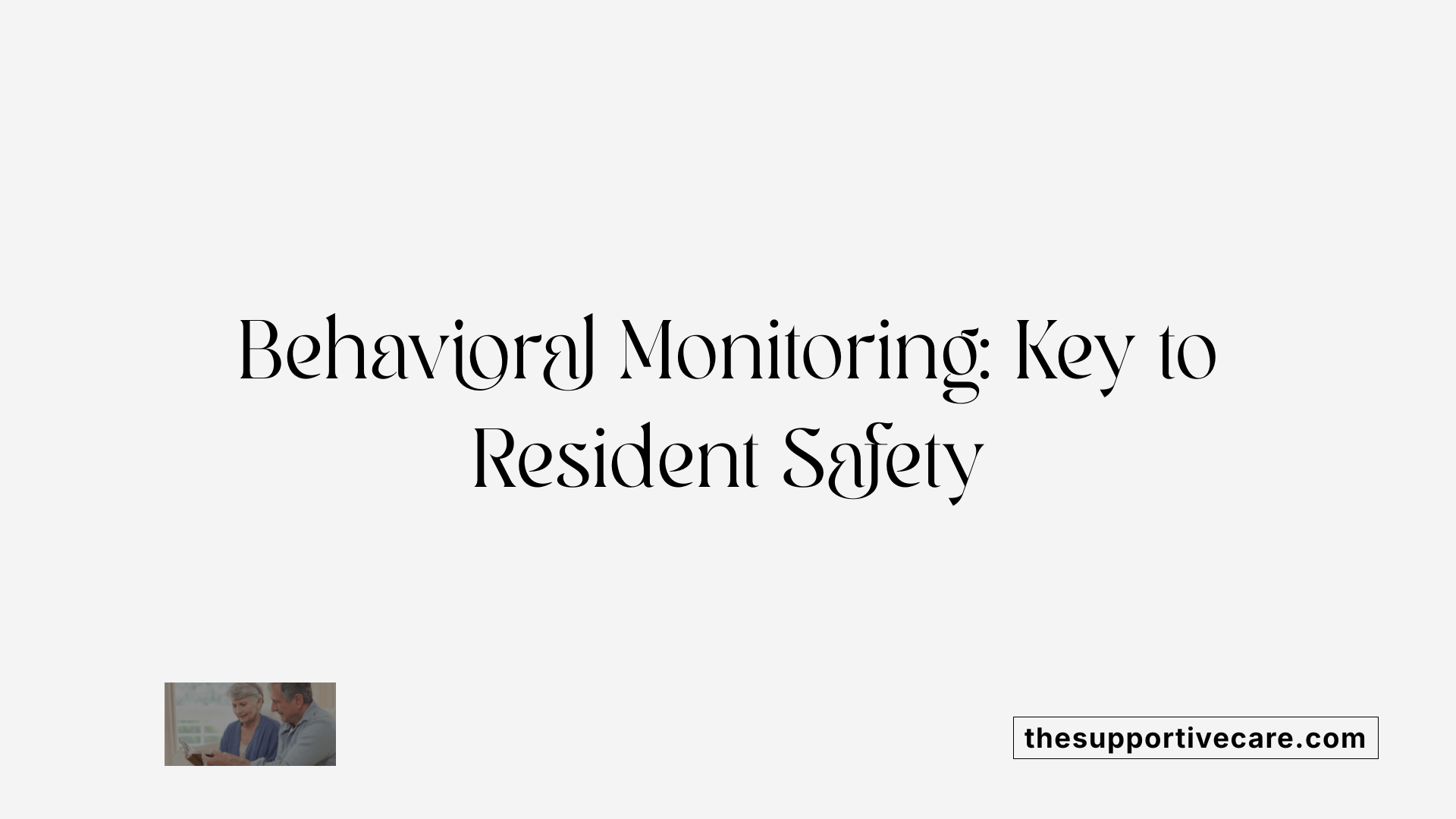The Critical Role of Mental Well-Being in Assisted Living
As the senior population grows, the importance of integrating comprehensive health monitoring—including behavioral health—into assisted living environments becomes ever more evident. Regular assessments not only promote physical health but are essential for supporting mental and emotional well-being, which directly affects residents' quality of life, safety, and independence.
The Significance of Regular Health Monitoring in Senior Living

How does routine health monitoring contribute to early detection and disease management in assisted living?
Routine health monitoring plays a crucial role in spotting health issues early. By consistently tracking vital signs, mobility, cognitive function, and overall physical health, caregivers can identify subtle changes that might indicate developing problems. For example, slight weight loss, blood pressure fluctuations, or changes in sleep patterns can signal underlying conditions needing attention.
Advances in technology enhance this process. Wearable health devices and telehealth services provide real-time data, offering immediate insights into residents' health statuses. These tools can alert staff to anomalies such as irregular heart rhythms, low oxygen levels, or elevated blood sugar, prompting timely interventions.
Personalized care plans are crafted based on detailed health assessments that include medical histories, medication use, and current health metrics. Continual data collection allows for adjustments tailored to each resident’s needs, especially when managing chronic illnesses like diabetes, hypertension, or dementia.
Regular health screenings—covering physical exams, blood tests, cognitive evaluations, and medication reviews—augment ongoing monitoring efforts. These comprehensive assessments help detect early signs of health decline, enabling treatment modifications before conditions worsen.
Community engagement, mental health assessments, and emotional support form the holistic aspect of senior care. By combining physical health monitoring with emotional and social care, assisted living facilities can provide a balanced approach that promotes overall well-being.
Integrating systematic and personalized health monitoring ultimately helps prevent severe health episodes, decreases hospitalizations, and improves residents’ quality of life. Continuous surveillance ensures that conditions are managed proactively, fostering a safer and healthier living environment for seniors.
Embracing Behavioral Health Monitoring as a Standard Practice

What are the benefits of integrating behavioral health monitoring as a standard practice in senior care?
Integrating behavioral health monitoring into routine senior care offers many advantages. One major benefit is the early detection and intervention for mental health issues such as depression, anxiety, or confusion, which can significantly improve residents' outcomes and decrease the likelihood of hospitalization.
A comprehensive, holistic approach to care includes not only physical health assessments but also mental and emotional health monitoring. This approach ensures that residents receive well-rounded, personalized treatment plans that promote their overall safety and well-being.
Modern digital health technologies greatly enhance the accessibility and efficiency of behavioral health services. Telehealth consultations, remote monitoring tools, and digital therapeutics are now being used to provide timely mental health support without the need for travel. These tools are especially important for seniors with mobility challenges or those living in remote areas.
Policy initiatives and increased reimbursement options through Medicare and other programs are vital for supporting these advancements. They help expand access to qualified mental health providers and facilitate timely care, addressing untreated behavioral health conditions among seniors.
Monitoring social factors like loneliness and social isolation is also crucial. These issues have a profound impact on mental health and can be mitigated through targeted community engagement and support programs.
In summary, adopting behavioral health monitoring as a standard practice enhances early intervention, integrates innovative technologies, promotes a holistic care model, and benefits from supportive policies—ultimately improving the quality of life for seniors.
Understanding the Importance of Behavioral Health in Senior Well-Being

Why is behavioral health monitoring important in assisted living for seniors?
Monitoring mental and emotional health is crucial in assisted living settings, as it helps identify signs of mental health issues early on. Conditions such as depression, anxiety, and trauma are common among seniors, often going unnoticed until they significantly impact daily life.
Regular behavioral health checks enable caregivers and healthcare providers to recognize warning signs promptly. This early detection allows for timely intervention, which can prevent the worsening of symptoms and preserve residents' independence.
Effective monitoring supports the development of personalized mental health care plans. These plans might include therapy sessions, social interaction activities, or telehealth services tailored to each individual's needs. This personalized approach ensures that residents receive appropriate support, fostering emotional resilience.
Additionally, consistent mental health assessments help reduce feelings of social isolation, a common issue that can intensify mental health problems. By promoting engagement and resilience through supportive programs and community involvement, assisted living communities can enhance residents' overall quality of life.
In summary, behavioral health monitoring is a vital component of holistic senior care. It safeguards mental well-being, fosters social connectedness, and promotes a sense of safety and stability within assisted living environments.
The Impact of Routine Mental and Emotional Assessments

Why is regular mental health assessment important for seniors in care facilities?
Routine mental health evaluations are vital for residents in senior care environments as they help identify early signs of mental health issues such as depression or cognitive decline. Using standardized tools like the Geriatric Depression Scale allows healthcare providers to detect emotional and mental health concerns before they become more serious.
Early detection of problems such as dementia enables timely interventions that can slow disease progression and improve quality of life. Cognitive screening tests, including the Mini-Cog™ and other assessments, help distinguish between normal age-related changes and signs of underlying conditions.
These evaluations support the development of personalized care plans, ensuring that each senior's emotional and mental needs are addressed effectively. Regular assessments not only promote mental well-being but also help maintain independence and dignity, which are fundamental to quality geriatric care.
In addition, routine mental health checks facilitate better planning for future care needs, including social support, therapy, and medical treatment. They also help caregivers distinguish mental health symptoms from physical illnesses, leading to more comprehensive and compassionate support.
Overall, consistent mental and emotional assessments contribute significantly to the residents’ overall health, stability, and happiness in senior living communities, emphasizing preventive care and early intervention.
Enhancing Mental and Emotional Well-Being Through Behavioral Monitoring

What role does behavioral health monitoring play in improving mental health and overall well-being among residents?
Behavioral health monitoring is an essential component of supporting seniors' mental and emotional health in assisted living settings. It involves systematically observing residents for signs of depression, anxiety, loneliness, and other mental health concerns. This ongoing assessment allows staff to detect issues early, enabling timely intervention that can prevent deterioration.
Through continuous mental health evaluations, facilities can create personalized therapeutic plans tailored to each resident's unique needs. These plans may include therapy sessions, medication adjustments, and social engagement initiatives designed to boost emotional resilience.
Implementing behavioral monitoring also helps foster a supportive environment where seniors feel understood and connected. Engaging residents in cognitive activities, group therapies, and peer support reduces feelings of isolation and promotes a sense of purpose and belonging.
In summary, behavioral health monitoring not only supports early detection and personalized treatment but also encourages holistic care, significantly enhancing residents' overall well-being, independence, and happiness.
Creating a Supportive and Safe Environment for Residents

Why should behavioral health monitoring be considered a core component of assisted living care protocols?
Behavioral health monitoring is essential in assisted living environments because many seniors experience mental health issues such as depression, anxiety, and other serious conditions. Regular assessment of mental and emotional well-being helps staff identify early signs of distress or behavioral changes.
Detecting mental health needs promptly allows for timely and appropriate interventions, which can improve overall quality of life and reduce reliance on medications like antipsychotics that may have adverse effects.
Implementing comprehensive behavioral health assessments also encourages person-centered care. Residents are actively involved in their care planning, ensuring treatments and activities align with their individual preferences and needs.
Effective monitoring supports staff training, equipping them with the skills to handle behavioral issues compassionately and effectively. It also promotes the integration of nonpharmacological therapies, such as counseling, group activities, and sensory interventions, to enhance mental well-being.
Prioritizing behavioral health within care protocols fosters a safer, more engaging environment. It helps build a community where residents feel understood, valued, and supported—ultimately leading to better mental health outcomes and a more homelike atmosphere.
Prioritizing Mental Well-Being for Quality Senior Living
In conclusion, integrating routine behavioral health monitoring into assisted living protocols is essential for delivering holistic, person-centered care. It enables early detection of mental health issues, supports personalized treatment, and fosters a safe, engaging environment that enhances residents’ quality of life. As the aging population grows, the adoption of comprehensive health and behavioral assessments will become increasingly vital for maintaining dignity, independence, and overall well-being among seniors.
References
- Wellness Checks and Routine Health Monitoring in Senior Living
- How Assisted Living Communities Support Mental Health for Seniors
- Daily Routines That Support Wellbeing in Assisted Living
- How Daily Routines Improve Mental Health for Seniors
- The Importance Of Continuous Health Monitoring For Seniors
- The Importance of Regular Health Check-ups in Assisted Living
- the role of health monitoring and infection control in promoting well ...



































































































